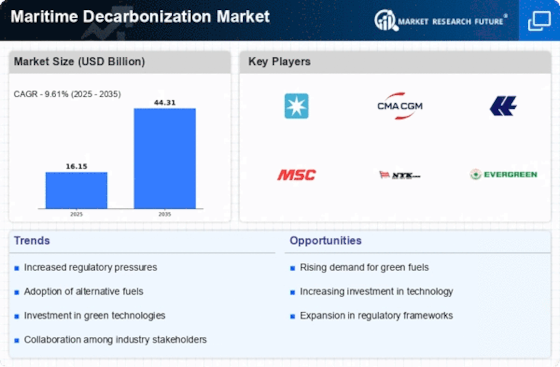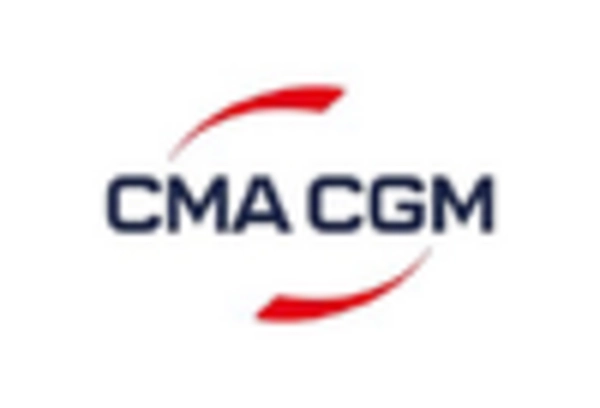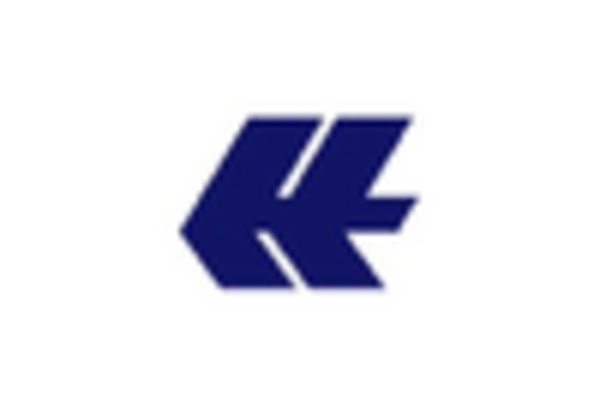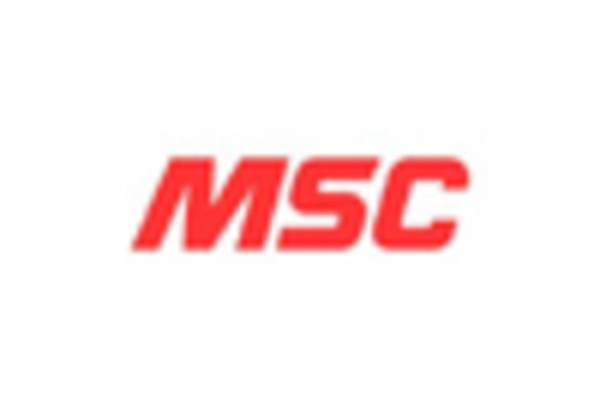Market Trends
Key Emerging Trends in the Maritime decarbonization Market
The market trends of maritime decarbonization are witnessing a transformative shift as the maritime industry grapples with the urgent need to reduce its carbon footprint. With increased awareness of environmental concerns and stringent regulations aimed at curbing emissions, the maritime sector is experiencing a growing demand for sustainable solutions.
One prominent trend in the maritime decarbonization market is the adoption of alternative fuels. Traditional marine fuels, such as heavy fuel oil, are notorious for their high carbon content and adverse environmental impact. In response, the industry is exploring cleaner alternatives, including liquefied natural gas (LNG), biofuels, and hydrogen. These alternative fuels not only help reduce greenhouse gas emissions but also contribute to the industry's efforts to comply with upcoming regulations.
Another noteworthy trend is the development and implementation of energy-efficient technologies. Maritime stakeholders are increasingly investing in innovative technologies that enhance fuel efficiency and reduce energy consumption. Ship design modifications, propulsion systems, and advanced materials are being employed to optimize energy usage and minimize environmental impact. This trend aligns with the industry's commitment to achieving carbon neutrality and improving overall operational sustainability.
Furthermore, there is a growing emphasis on digitalization and data-driven solutions to optimize maritime operations. Advanced analytics, artificial intelligence, and IoT (Internet of Things) technologies are being leveraged to monitor vessel performance, streamline navigation, and optimize routes for fuel efficiency. This not only reduces operational costs but also contributes to the industry's broader goals of sustainability by minimizing unnecessary fuel consumption and emissions.
Regulatory initiatives are playing a crucial role in shaping the market trends of maritime decarbonization. The International Maritime Organization (IMO) and various national authorities are introducing stringent regulations to limit emissions from ships. These regulations, such as the International Maritime Organization's Energy Efficiency Existing Ship Index (EEXI) and the Carbon Intensity Indicator (CII), are driving maritime companies to adopt cleaner technologies and practices to comply with the evolving standards.
Collaboration and partnerships are becoming increasingly prevalent in the maritime decarbonization market. Industry players are recognizing the complexity and scale of the challenge, leading to collaborative efforts between shipowners, technology providers, and energy companies. These partnerships aim to pool resources, share expertise, and accelerate the development and adoption of sustainable solutions, fostering a collaborative approach to address the maritime industry's decarbonization challenges.
As sustainability gains momentum in the maritime sector, investors are increasingly focusing on companies that demonstrate a commitment to decarbonization. Financial institutions are incorporating environmental, social, and governance (ESG) criteria into their investment decisions, encouraging maritime companies to prioritize sustainability in their business strategies. This financial backing is instrumental in supporting research, development, and implementation of green technologies within the maritime industry.
The market trends of maritime decarbonization reflect a dynamic and evolving landscape. From the adoption of alternative fuels and energy-efficient technologies to the increasing influence of digitalization and collaborative initiatives, the maritime industry is actively responding to the urgent need for sustainability. Regulatory pressures, coupled with growing environmental awareness and investor interest, are driving a paradigm shift towards a more environmentally responsible and carbon-neutral maritime sector.


















Leave a Comment